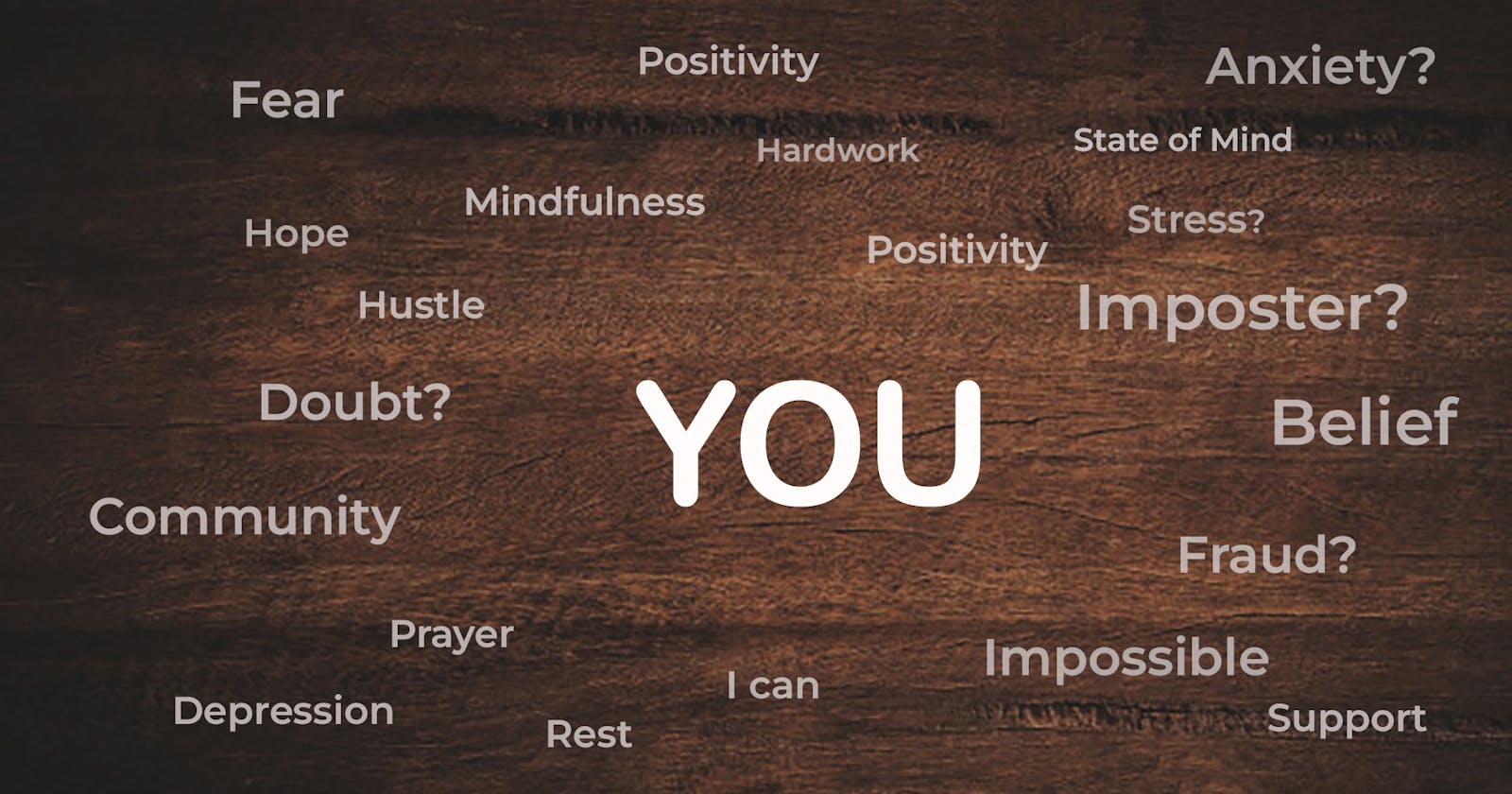<>Mental Health</>
This article talks about mental health, imposter syndrome, and some resolutions
What's going on people?
Today I'm a bit informal because this is more of a personal post rather than the usual coding post (obviously I'm going to mention coding a couple of times🙃). Since we commemorated Mental Health day in October, I decided to write a brief post regarding mental health, imposter syndrome, and some personal experiences. As I said earlier, it's personal so don't expect Ph.D. level psycho-analysis (I'm just a mere mortal).
According to WHO, Mental Health is a state of mental well-being that enables one to deal with the stresses of life, realise their abilities, learn and work well, and also contribute to their society.
It encompasses almost everything from the way we feel, the way we think, and the way we act. Anxiety, bipolar disorder, depression, PTSD, stress, anger, drastic low self-esteem, OCD, etc. are all different forms of mental health issues. It's quite amazing how almost a billion people have or are dealing with mental health issues but yet, it is so stigmatised.
The state of an individual’s mind affects everything including productivity and this is very notable in fields like software development. Trust me, we all need a sound mind to write code especially when we get stuck during development. Covid-19 also didn’t help but expose newer levels of issues that affected a lot of people including myself. I remember there was even a point last year where I almost gave up on freelancing and ultimately coding, even though I had been coding for years and have an MSc in Software Engineering. It took the support of my close relations and prayer to power me through that phase.
A major thing I realised about IT and life, in general, is that everyone is still 'figuring it out'. Muttering to yourself and asking questions like "Can I do this?", "Am I good enough?", and "What if I'm wrong?" are classic examples of the infamous Imposter Syndrome. I have had my fair share of imposter syndrome but I remember watching a TEDx video of Michael Cannon-Brookes, co-founder and co-CEO of Atlassian (the company that gave us our beloved Bitbucket and JIRA), admitting to having imposter syndrome and meeting other top executives (billionaires) who had it too. On that day, I realised the feeling of imposter syndrome would not disappear into thin air and that no level of success could get rid of it, so I needed to embrace it and make it work for my good.
With the intention of powering through and stepping out of my comfort zone, I decided to mentor a few people, and I must admit it's helped me a lot. In addition, I joined a number of developer groups which has given me the opportunity to meet and connect with a plethora of amazing resource persons. Fast-forward to today, I'm working as a Lead (look at that😂) in a top Fortune 500 company and continually striving to be a better version of myself.
"Oh wow!", the brief post is getting lengthier, isn't it? I think I will probably need to write a bit more about my journey (the highs and lows) in the near future, just to motivate that single person out there.
One takeaway from this post is that no one has it figured out, so reach out if you've got issues and understand that: you can't achieve if you give up. Remember it all starts with "I can do it". Until next time, stay safe 😉.
